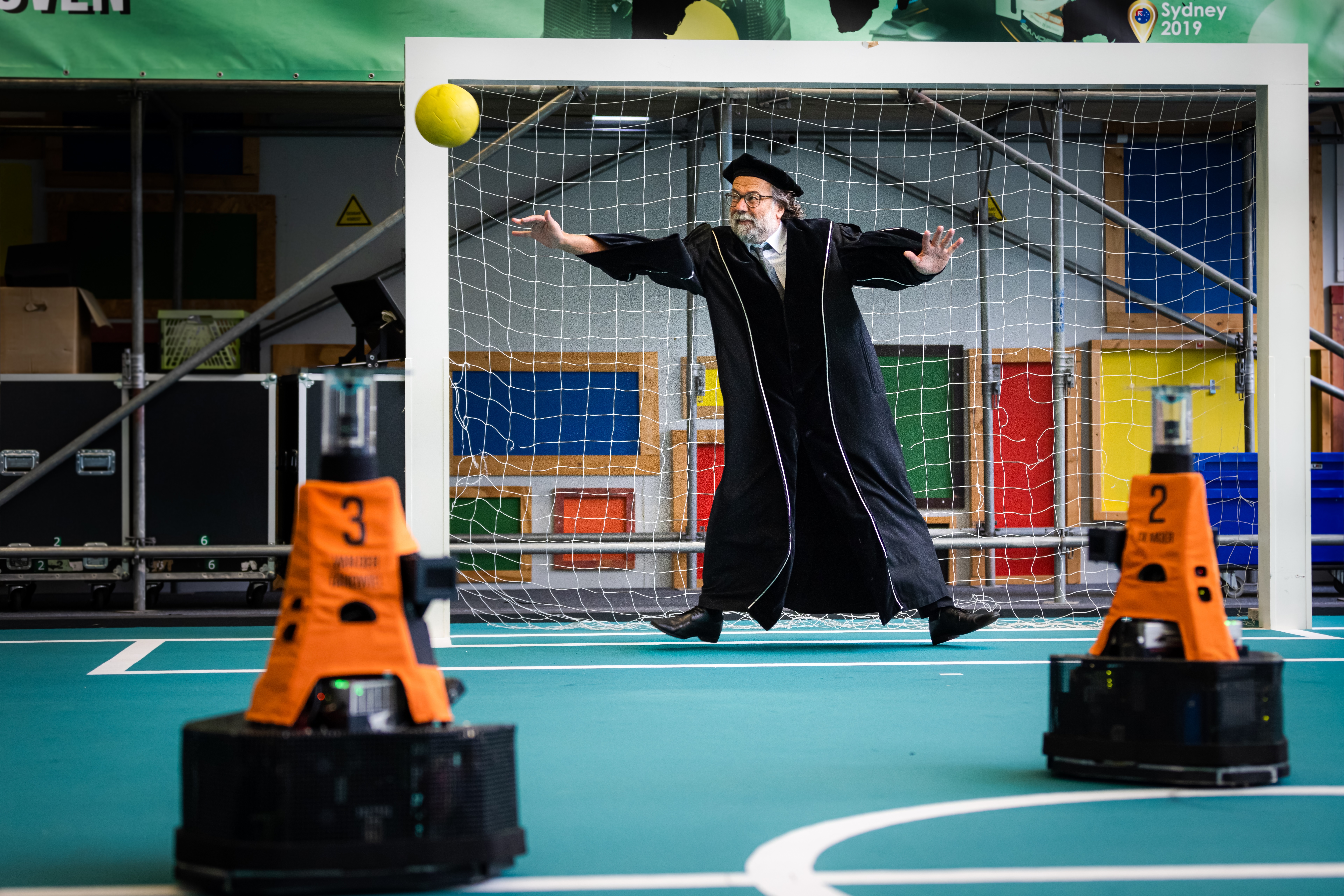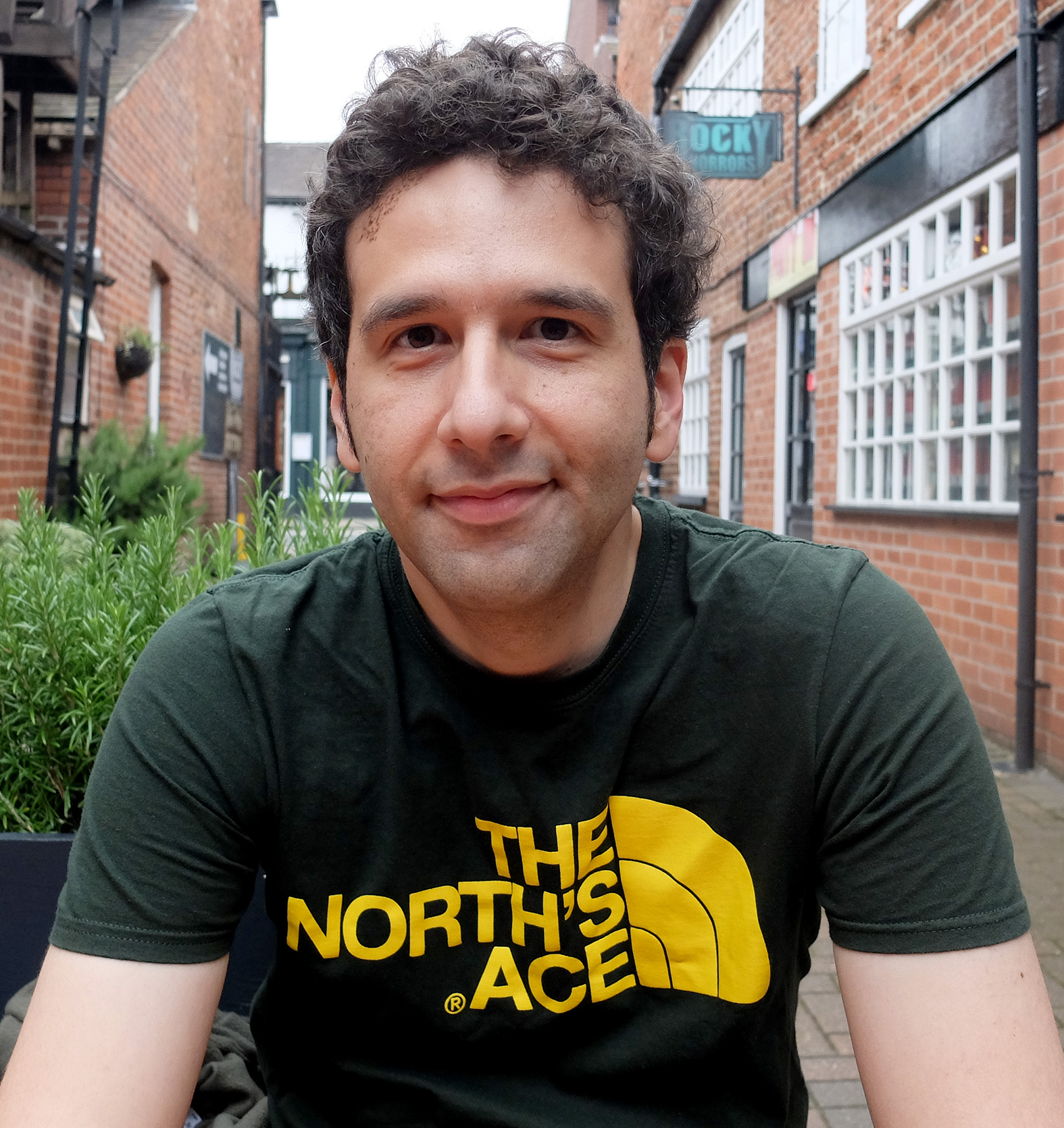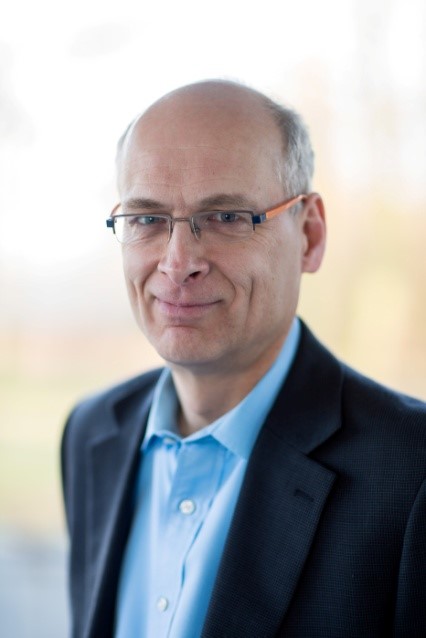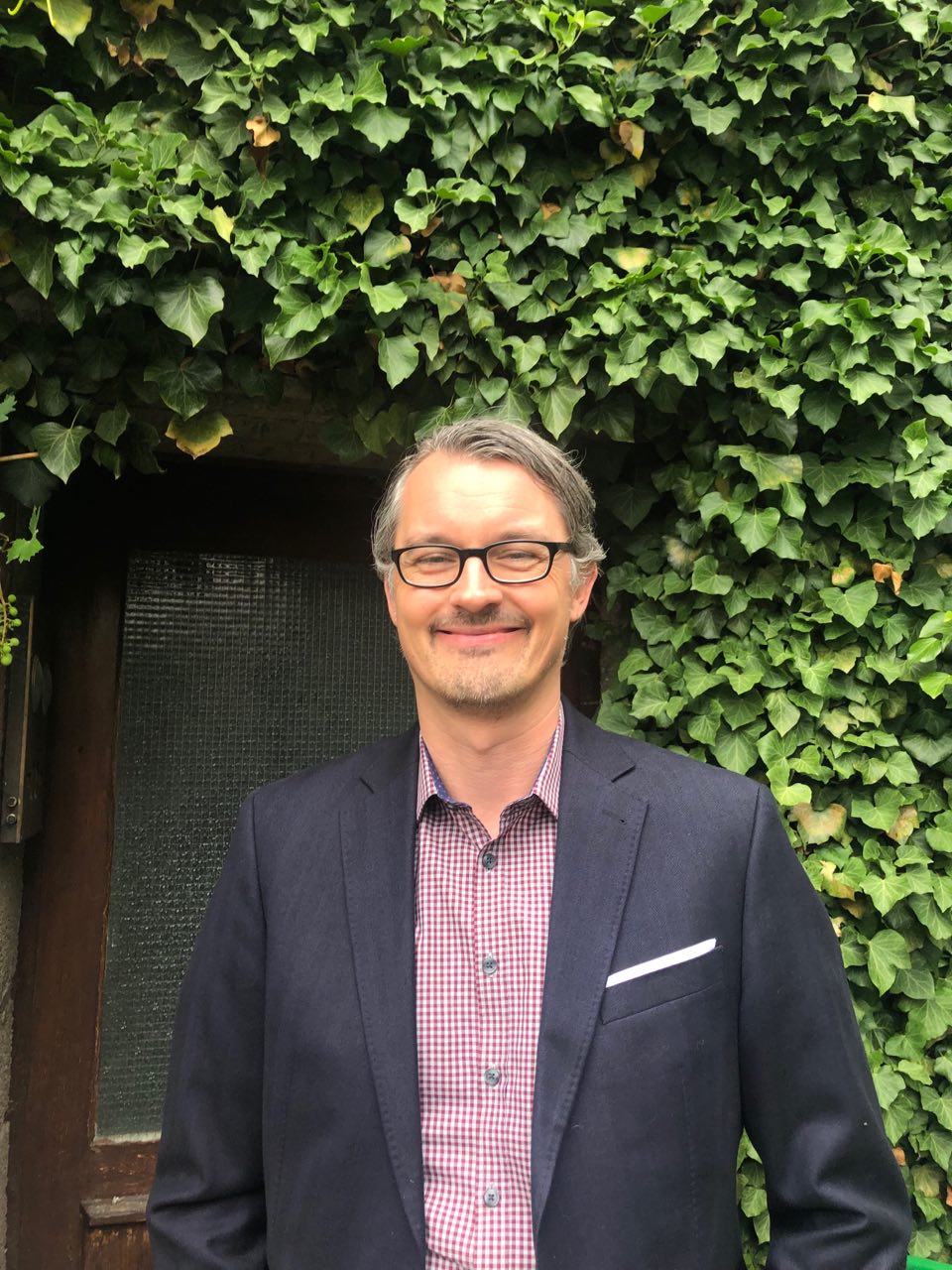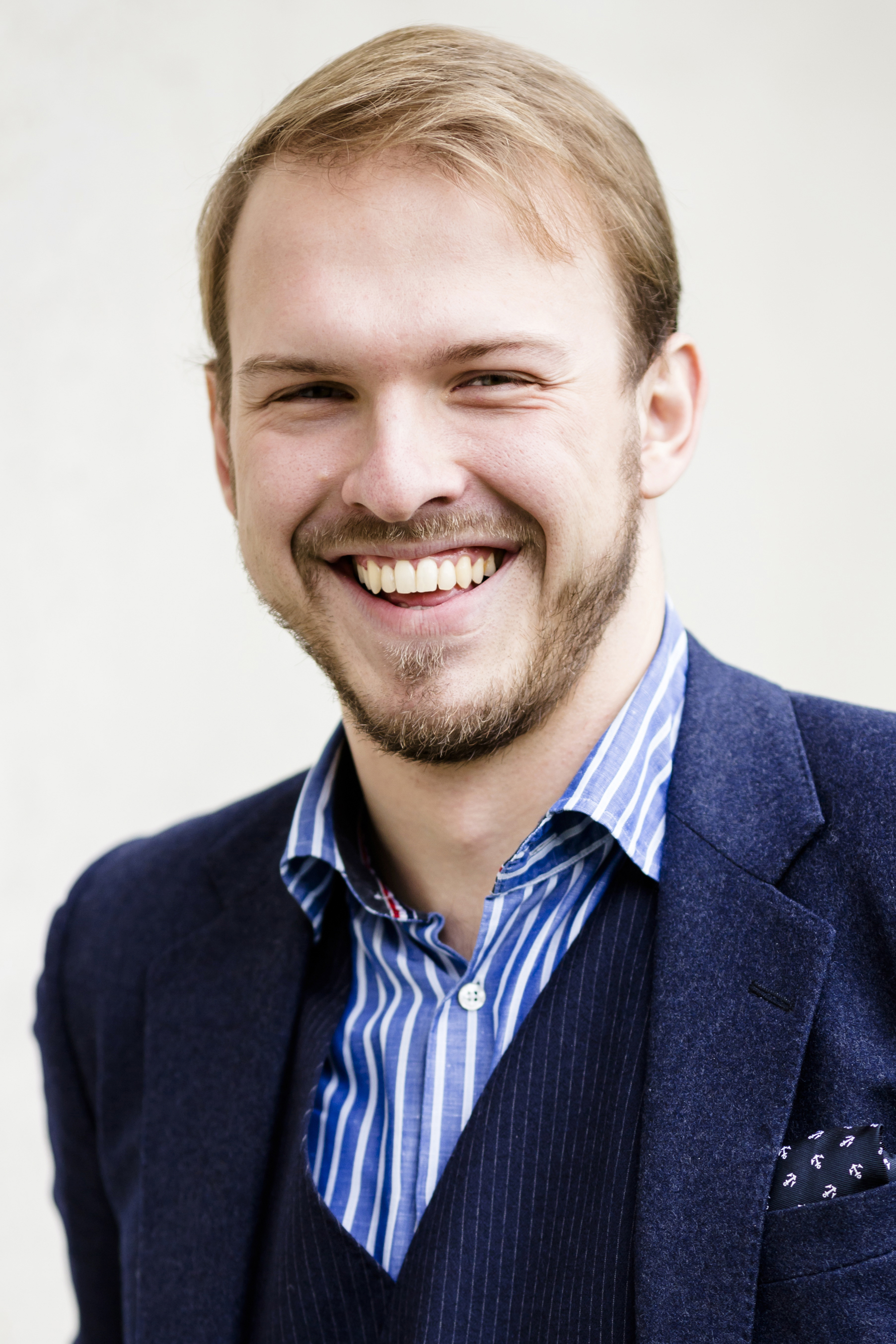Abstracts and biographies
Maarten Steinbuch
Title: Robots for Health Solutions
Abstract:
Computing power doubles every two years, and is called Moore’s Law. This exponential rate of change enables accelerating developments in sensor technology, AI computing and in robotics and automotive. Machines to make products in modern factories will be smart and self-learning. Cars will become like an iPad on wheels. Our group is world champion in soccer playing robots, and our research on precision surgical robotics is now going to the market. How difficult is it to have deep-tech start-ups? And how can our research with playing robot soccer also be applied to service robotics for care at home and health logistics. Finally: the exponential progress of technology requires a reset of the roles of universities, leading to the notion of 4th generation universities.
Biography:
Maarten Steinbuch (born 1960 in Zeist, NL) is a high-tech systems scientist, entrepreneur and communicator. He holds the chair of Systems & Control at Eindhoven University of Technology (TU/e), where he is Distinguished University Professor. He is also Scientific Director of Eindhoven Engine. The research of his group spans from automotive engineering (with a focus on connected cars and clean vehicles) to mechatronics, motion control, and fusion plasma control. He is most known for his work in the field of advanced motion control and mechatronics, as well as in precision surgical robotics. Steinbuch is a prolific blogger and a key opinion leader on the influence of new technologies on society.
Anestis Tsakirdis
Title: From neural crest to nervous system
Abstract:
The neural crest (NC) is a multipotent cell population, which arises in the dorsal neural plate/non-neural ectoderm border region during vertebrate embryogenesis and generates a variety of cell types following epithelial-to-mesenchymal transition and migration through diverse routes. NC cells emerge at all levels of the anteroposterior (A-P) axis and their A-P position determines the identity of their derivatives. Defects in the specification, differentiation or migration of NC cells lead to a wide spectrum of serious developmental disorders, often in an axial level-specific manner and are known collectively as neurocristopathies. In my talk, I will describe our recent work focusing on the in vitro generation of NC cells of distinct A-P identities from human pluripotent stem cells (hPSC). I will also discuss the potential clinical applications of these cells in disease modelling and regenerative medicine.
Biography:
I graduated with BSc(Hons) in Biochemistry from the University of Edinburgh in 2001 and, after an MSc in Life Sciences, I did a PhD (2002-2006) in the lab of Lesley Forrester in the same University, focusing on gene trap mutagenesis in mouse embryonic stem cells. This was followed by a postdoc first with Josh Brickman and then Val Wilson in the Institute for Stem Cell Research/MRC Centre for Regenerative Medicine in Edinburgh studying cell fate decisions in the early mouse embryo through the use of pluripotent stem cell-based models. In 2016 I was awarded a Vice-Chancellor’s Fellowship from the University of Sheffield, and subsequently, a BBSRC New Investigator grant to start my own research group at the Centre for Stem Cell Biology (CSBC) in the Biomedical Sciences Department (BMS) where I am currently a lecturer. My group’s research aims to understand how human embryonic cells adopt different fates as they transit from pluripotency to lineage commitment, and exploit this knowledge for regenerative medicine and disease modelling applications with a particular focus on the anteroposterior regionalisation of neural crest and spinal cord cells.
Sjoerd Romme
Title: Transforming TU/e entrepreneurship practices
Abstract:
Today many universities are facing major challenges in how to facilitate and support various forms of entrepreneurship among their students and faculty members. In this respect, the Technology Transfer Office approach (focusing on creating IP-based spinoffs from academic research) which has long prevailed in universities of technology is increasingly being replaced by a broader approach toward equipping students with entrepreneurial skills, on-campus industry collaborations, entrepreneurship garages, and creating jobs in the region. In the past few years, the TU/e has also embarked on this journey toward adopting and implementing a more broader, eclectic approach in the area of student and academic entrepreneurship. I’ll share some of the policies and strategies formulated in this area and describe the various barriers and challenges we’re facing in this transformation.
Biography:
Georges (Sjoerd) Romme is a professor of Entrepreneurship & Innovation at Eindhoven University of Technology (TU/e). Georges obtained an MSc degree in economics from Tilburg University and a doctoral degree in business administration from Maastricht University. From 2007 to 2014, he served as dean of the TU/e department of Industrial Engineering & Innovation Sciences. Georges received several educational awards from the European Foundation of Management Development (EFMD) and Maastricht University. Career achievement awards include the 2016 Tjalling C. Koopmans Asset award and the 2019 Distinguished Scholar-Practitioner Award of the Academy of Management. Romme’s monograph ‘The Quest for Professionalism’ (Oxford University Press) received the 2017 Best Book Award from the European Academy of Management as well as the 2017 Responsible Research in Management award. His scholarly work focuses on organization design, professionalism, technology entrepreneurship, new business development, and organizational learning and renewal. Most of Romme’s work aims at developing a design mindset among management and entrepreneurship scholars. He currently also serves as TU/e Ambassador for Entrepreneurship; in this role, Georges supports the TU/e Executive Board in improving the university's facilities and conditions for student entrepreneurship, academic entrepreneurship and other forms of entrepreneurial behavior.
Jens Schwamborn
Title: Modeling Parkinson’s disease in patient specific midbrain organoids
Abstract:
In Parkinson’s disease (PD) patients the dopaminergic neurons of one region in the midbrain, the substantia nigra, are highly vulnerable for degeneration, while the dopaminergic neurons of a neighboring region, the ventral tegmental area, are not. The reasons for this selective vulnerability are largely unknown to date. This lack of knowledge, to a good extend is the consequence of the absence of human specific models for the midbrain.
Here, we demonstrate that three-dimensional (3D) differentiation of expandable human midbrain floor plate neural progenitor cells (mfNPCs) leads to organoids that resemble key features of the human midbrain. These organoids are composed of midbrain dopaminergic neurons (mDANs), which produce and secrete dopamine. Additionally, the midbrain organoids contain other neuronal subtypes, astrocytes and oligodendrocytes. They can be further enriched with induced pluripotent stem cell (iPSC) derived microglia. Patient and disease specific midbrain organoids can be generated through the usage of patient derived iPSCs. Importantly, in these disease specific organoids, key hallmarks of PD including reduced numbers of dopaminergic neurons and appearance of alpha-Synuclein positive protein aggregates are recapitulated. Thus, we provide a robust method to reproducibly generate 3D human midbrain organoids containing mDANs to investigate PD-relevant patho-mechanisms.
Biography:
In 2002 Jens obtained a diploma in Biochemistry from the University Witten/Herdecke in Germany and in 2005 a PhD in Biology from the University Muenster in Germany. He worked as a postdoctoral researcher at the Institute for Molecular Biotechnology in Vienna / Austria. Since 2013 Jens is head of the Developmental and Cellular Biology group at the Luxembourg Centre for Systems Biomedicine (LCSB) as well as Professor at the University of Luxembourg.
Jens Co-founded OrganoTherapeutics SARL-S, where he currently acts as CEO, in 2019. Before he was co-founder and CSO of Braingineering Technologies SARL (2016-2018).
The focus of his work over the last years was on Neurobiology, Stem Cell research and Parkinson’s disease. In particular he is interested in using human induced pluripotent stem cells for the development of advanced approaches for in vitro disease modeling.
Madis Talmar
Title: Mind your ecosystem
Abstract:
To achieve a complex value proposition, innovating firms often need to rely on other actors in their innovation ecosystem to make complementary products and services available. Meanwhile, firms lack hierarchical control and full visibility of the ability and willingness of their ecosystem partners. This implies that co-innovating carries considerable extra risks in addition to the standard market and product risks. In this talk, Madis Talmar explains the challenges of organizing innovation in ecosystems, focusing on how to manage risks associated to dependence on other parties. The session is targeted to product and/or innovation managers, business developers, technology transfer officers, and similar.
Biography:
Madis Talmar is the manager of TU Eindhoven's student technology development teams program and an assistant professor on innovation. In his academic work, he has developed several tools for practitioners to evaluate and strategize in complex innovation situations. As such, he is also the author of the software package 'Thrive' that gamifies innovation ecosystem modeling, developed for the Portugese biggest business association COTEC. Madis also has a background as a marketing manager and in organizing open innovation programs for corporations such as RWE Generation (GER), Innogy (NED), Red Eléctrica (ESP), and Swedegas (SWE).
7th International Workshop on Healthcare, Life-Sciences, and Entrepreneurship
 Registration website for 7th International Workshop on Healthcare, Life-Sciences, and Entrepreneurship
Registration website for 7th International Workshop on Healthcare, Life-Sciences, and Entrepreneurship 7th International Workshop on Healthcare, Life-Sciences, and Entrepreneurship noreply@mailing.tue.nl
7th International Workshop on Healthcare, Life-Sciences, and Entrepreneurship noreply@mailing.tue.nlhttps://www.hlse.nl
2022-06-19
2022-06-22
OfflineEventAttendanceMode
EventScheduled
7th International Workshop on Healthcare, Life-Sciences, and Entrepreneurship 7th International Workshop on Healthcare, Life-Sciences, and Entrepreneurship 0.00EUROnlineOnly2019-01-01T00:00:00Z
To be announcedTo be announced
